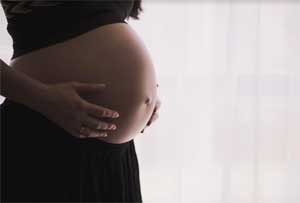- Home
- Editorial
- News
- Practice Guidelines
- Anesthesiology Guidelines
- Cancer Guidelines
- Cardiac Sciences Guidelines
- Critical Care Guidelines
- Dentistry Guidelines
- Dermatology Guidelines
- Diabetes and Endo Guidelines
- Diagnostics Guidelines
- ENT Guidelines
- Featured Practice Guidelines
- Gastroenterology Guidelines
- Geriatrics Guidelines
- Medicine Guidelines
- Nephrology Guidelines
- Neurosciences Guidelines
- Obs and Gynae Guidelines
- Ophthalmology Guidelines
- Orthopaedics Guidelines
- Paediatrics Guidelines
- Psychiatry Guidelines
- Pulmonology Guidelines
- Radiology Guidelines
- Surgery Guidelines
- Urology Guidelines
Prenatal bisphosphonate exposure not linked to teratogenic risks

Exposure to bisphosphonate during pregnancy might not be linked to major teratogenic risks, according to a new study presented at the 2018 American College of Rheumatology and Association of Rheumatology Health Professionals (ACR/ARHP) Annual Meeting held October 19-24, 2018 in Chicago, Illinois.
Sayanika Kaur, a research fellow from Drexel University in Philadelphia, and colleagues conducted the systematic review of available evidence to assess whether bisphosphonate use in pregnancy and preconception phase (<1 year before pregnancy) increases the risk of adverse neonatal and pregnancy outcomes.
For the purpose, the researchers utilized PubMed, Cochrane Library, and Ovid. They included 15 case reports, 4 case series, and 4 cohort studies in which 120 preconception or pregnancy exposures to bisphosphonates were analyzed for impact on pregnancy or neonatal outcome.
The majority of exposures were single-dose. Only 4 studies had a comparator group. Indications for bisphosphonate use were malignancy, CS-induced osteoporosis and bone-related disorders like Gaucher.
The primary outcome was all adverse outcomes including abortions, stillbirths, congenital malformations, and low birth weight.
Also Read: Different antiepileptic drugs and dosages have different teratogenic risks
Key Findings:
- The quality of evidence in all studies (using the GRADE approach) was “low” or “very low."
- Congenital malformations were reported in 7/120 pregnancies including 2 cardiac valvular defects (VSD and PDA), 1 kidney malformation and 3 bony malformative disorders.
- Rates of congenital malformation and abortion were comparable in bisphosphonate-exposed and controls in studies with a comparator group.
- Mean birth weight and gestational age were slightly lower than in the general population.
"Preconception and pregnancy exposure to bisphosphonates does not pose major teratogenic risks. These results will be useful when counseling women about risks related to pregnancy and accidental conception," concluded the authors.
Also Read: Progestogen Therapy prevents recurrent miscarriage
However, they stressed the importance of further controlled studies to fully establish the safety of bisphosphonates in connection with pregnancy.
For further reference log on to https://acr.confex.com/acr/2018/meetingapp.cgi/Paper/73237

Disclaimer: This site is primarily intended for healthcare professionals. Any content/information on this website does not replace the advice of medical and/or health professionals and should not be construed as medical/diagnostic advice/endorsement or prescription. Use of this site is subject to our terms of use, privacy policy, advertisement policy. © 2020 Minerva Medical Treatment Pvt Ltd